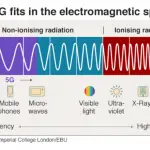Psoriasis is a chronic autoimmune disorder that affects millions of individuals worldwide. It is characterized by inflammation and overproduction of skin cells, leading to red, scaly patches on the skin. While there is no known cure for psoriasis, there are several treatment options available, one of which is light therapy. In this discussion, we will explore whether light therapy can help alleviate the symptoms of psoriasis.
Contents
Understanding Psoriasis
Psoriasis is a chronic autoimmune condition that affects the skin, causing red, scaly patches to form. It is a common condition, affecting approximately 2-3% of the world’s population. The exact cause of psoriasis is unknown, but it is believed to be related to an overactive immune system.
Symptoms of Psoriasis
The most common symptoms of psoriasis include:
- Red, scaly patches of skin
- Itching and burning sensations
- Dry and cracked skin that may bleed
- Thickened, pitted, or ridged nails
- Joint stiffness and pain (in some cases)
Types of Psoriasis
There are several different types of psoriasis, including:
- Plaque psoriasis: The most common type, characterized by red, scaly patches of skin that are often itchy and painful.
- Guttate psoriasis: Typically affects children and young adults, causing small, drop-shaped lesions on the skin.
- Inverse psoriasis: Affects skin folds, such as the armpits, groin, and under the breasts.
- Pustular psoriasis: Causes pus-filled blisters to form on the skin.
- Erythrodermic psoriasis: A severe and rare form of psoriasis that can cover the entire body with a red, peeling rash.
Conventional Treatments for Psoriasis
Conventional treatments for psoriasis typically include topical creams and ointments, oral medications, and light therapy. In severe cases, immunosuppressant drugs may also be prescribed.
Topical Creams and Ointments
Topical creams and ointments are the most commonly prescribed treatments for mild to moderate psoriasis. These medications are applied directly to the skin and can help reduce inflammation, itching, and scaling. Some of the most commonly prescribed topical medications include:
- Corticosteroids: A type of anti-inflammatory medication that can help reduce inflammation and itching.
- Vitamin D analogues: A synthetic form of vitamin D that can help slow down skin cell growth.
- Retinoids: A type of medication derived from vitamin A that can help reduce inflammation and normalize skin cell growth.
Oral Medications
Oral medications are typically reserved for more severe cases of psoriasis that do not respond to topical treatments. Some of the most commonly prescribed oral medications for psoriasis include:
- Methotrexate: A medication that suppresses the immune system and reduces inflammation.
- Cyclosporine: A medication that suppresses the immune system and reduces inflammation.
- Acitretin: A medication derived from vitamin A that can help reduce inflammation and normalize skin cell growth.
Light Therapy
Light therapy, also known as phototherapy, involves exposing the skin to specific wavelengths of light to reduce inflammation and promote healing. This treatment is typically used for moderate to severe psoriasis that does not respond to other treatments. There are several different types of light therapy, including:
- UVB therapy: Involves exposing the skin to ultraviolet B (UVB) light, which can help slow down skin cell growth and reduce inflammation.
- PUVA therapy: Involves taking a medication called psoralen and then exposing the skin to ultraviolet A (UVA) light. This type of therapy can be very effective but is also associated with some side effects, including an increased risk of skin cancer.
Light therapy has been shown to be an effective treatment for psoriasis, particularly for those with moderate to severe symptoms. UVB therapy is the most commonly used type of light therapy for psoriasis and has been shown to be effective in reducing inflammation and improving skin symptoms.
How Does Light Therapy Work for Psoriasis?
The exact mechanisms by which light therapy works for psoriasis are not fully understood. However, it is believed that UVB light helps to slow down the rapid growth of skin cells that is characteristic of psoriasis. It also helps to reduce inflammation and promote healing in the affected areas of the skin.
The Benefits of Light Therapy for Psoriasis
Some of the benefits of light therapy for psoriasis include:
- Non-invasive treatment: Light therapy is a non-invasive treatment that does not require surgery or the use of needles.
- Effective treatment: Light therapy has been shown to be an effective treatment for psoriasis, particularly for those with moderate to severe symptoms.
- Safe treatment: When performed under the guidance of a healthcare professional, light therapy is generally considered to be a safe treatment for psoriasis.
The Risks of Light Therapy for Psoriasis
While light therapy is generally considered to be a safe treatment for psoriasis, there are some risks associated with this type of treatment. These risks include:
- Skin damage: Exposure to UVB light can cause skin damage, including sunburn and an increased risk of skin cancer.
- Eye damage: Exposure to UVB light can also cause eye damage, including cataracts and macular degeneration.
- Rebound flare-ups: In some cases, light therapy can trigger rebound flare-ups of psoriasis symptoms.
FAQs for Can Light Therapy Help Psoriasis
What is psoriasis, and what are its symptoms?
Psoriasis is a long-lasting autoimmune disease that impacts the skin, leading to red, scaly patches that are frequently itchy and can be painful. The most prevalent forms of psoriasis include plaque psoriasis, guttate psoriasis, inverse psoriasis, pustular psoriasis, and erythrodermic psoriasis. The symptoms of psoriasis differ from person to person but usually involve scaly patches of skin that can be reddish or silvery and can appear anywhere on the body.
How can light therapy treat psoriasis?
Light therapy, also known as phototherapy, is a procedure in which a person is subjected to controlled and specific wavelengths of light in order to treat psoriasis. The ultraviolet B (UVB) range of light is usually used for psoriasis treatment, and it works by slowing down the rapid shedding of skin cells that is causing the psoriasis patches to develop. Light therapy can be used alone or in combination with other topical or oral medications, and it is typically done in a dermatologist’s office or clinic.
Is light therapy an effective treatment for psoriasis?
Light therapy has been shown to be an effective psoriasis treatment in many studies. Over 70% of individuals who use light therapy alone or in combination with other therapy methods have experienced some level of improvement in their psoriasis symptoms. Nonetheless, everyone’s reaction to light therapy is different, therefore it may not work as well for everyone.
What are the potential side effects of light therapy for psoriasis?
Although light therapy is a safe and well-tolerated psoriasis treatment option, there are some possible side effects to be aware of. These can include redness, itching, and skin peeling at the site of the treatments. Long-term effects of light therapy, like skin cancer or premature aging of the skin, are rare and can be minimized by following dermatologist’s instructions and appropriate precautions.
Who is a good candidate for light therapy for psoriasis?
Individuals who suffer from scalp, nail, or thick skin psoriasis, as well as individuals who do not respond well to topical medications or who are intolerant to systemic psoriasis treatments, may be good candidates for light therapy. Light therapy may not be suitable for individuals who have pre-existing skin conditions that make their skin particularly sensitive to UV light or who have a history of skin cancer. It is important to seek the advice of a dermatologist before trying light therapy.




.jpg)


